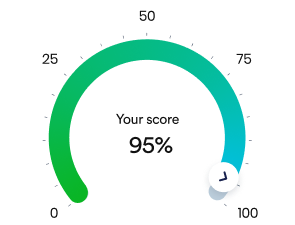Our review is designed to help you maximize your score on the Psychology PEP Board Review. StatPearls questions and articles are based on our experts review of the Association of State and Provincial Psychology Boards® topics. Each review course is designed to empower you to assess your knowledge and understanding of medical principles and concepts found on the Psychology PEP Board Review.
Monthly
$249
Subscription per month per user6 Months
$699
Subscription per 6 months per user-
Thorough Explanations
Become a better doctor with answer explanations that enable you to master the material. -
Do better on your exams with answers.
Questions and teaching points are continuously updated.
-
Test Exams & Unlimited Quizzes
Assess where your strong and generate practices questions where you're weak. -
Performance Reports
Actionable intelligence on where to improve.
Multiple-choice questions
We have 938 Multiple-choice 1st, 2nd, and 3rd order questions with four detailed teaching points linked to 382 PubMed indexed review articles related to the Psychopharmacology Test. You can customize practice questions to anatomical and clinical Psychopharmacology subject areas. In addition, you will have access to a pre- and post-test Psychology PEP Board Review to help you target learning and identify areas that need further study. Analytics and reports allow you to compare your scores to other students.
Achieve top scores
The StatPearls psychopharmacology questions will help you achieve a top score on the Psychopharmacology Test. 401 authors and 7 editors have contributed to the development of the Psychology PEP Board Review content, which is continuously refined and updated to improve your learning experience.
Score

Psychology PEP Board Review Overview
-
How many hours is the Psychology PEP Board Review?
The Psychology PEP Board Review is 4 hours.
-
How many questions is the Psychology PEP Board Review?
-
What topics are covered on the Psychology PEP Board Review?
Psychology PEP Board Review MCQs (938)
Our question bank for the Psychology PEP Board Review covers four Cognitive Difficulty Levels:
Level 1
46 Questions
Level 2
228 Questions
Level 3
497 Questions
Level 4
167 Questions
- Allergy and Immunology - 2 questions
- Cardiovascular - 38 questions
- Connective Tissue - 1 questions
- Ears Nose and Throat - 5 questions
- Endocrine and Metabolic - 37 questions
- Eyes - 5 questions
- Gastrointestinal - 16 questions
- Genetics - 3 questions
- Genitourinary - 14 questions
- Growth and Development - 37 questions
- Gynecologic - 5 questions
- Hematologic - 9 questions
- Infectious - 9 questions
- Integument - 8 questions
- Musculoskeletal - 25 questions
- Nervous - 250 questions
- Nutrition - 10 questions
- Obstetric - 14 questions
- Oncologic - 6 questions
- Psychiatric Mental Health - 991 questions
- Pulmonary - 8 questions
- Renal - 9 questions
- Surgery - 9 questions
- Toxicology - 119 questions
- Trauma, Injury, Safety, and Violence - 16 questions
- Teeth/Oral - 2 questions
- Reproductive - 2 questions
- Sexuality and Gender - 2 questions
- Psychiatric Addiction - 37 questions
- Pharmacology - 107 questions
- Anatomy - 1 questions
- Behavioral - 90 questions
- Neuroanatomy - 8 questions
- Pathology - 3 questions
- Biochemistry - 2 questions
- Physiology - 3 questions
- Cell Biology - 1 questions
- Manage Care and Comply Regulations - 17 questions
- Promote Safety and Minimize Infection - 7 questions
- Health Promotion & Maintenance (Prevent Problems) - 33 questions
- Basic Care and Comfort (Assist Daily Living Tasks) - 5 questions
- Pharm/Parenteral Therapy (Drugs/Vital Signs) - 376 questions
- Reduction Risk (Post Procedure) - 11 questions
- Physiological Adaptation (Care Ill Patients) - 226 questions
- Psychosocial (Mental Health Patient/Family) - 591 questions
- Professional Practice - 58 questions
- Process (Analysis, Assess, Eval, Implement, Plan) - 902 questions
- Caring (Hope and Support) - 15 questions
- Communication/Documentation (Oral, Written, EMR) - 18 questions
- Teaching/Learning (Promotes Behavior Change) - 24 questions
- Culture/Spiritualilty (Beliefs, Practices, Ethics) - 20 questions
- Causes - 269 questions
- Classification - 69 questions
- Differential - 383 questions
- Epidemiology - 42 questions
- Evaluation Diagnostic Tests - 65 questions
- Evaluation Lab - 75 questions
- Evaluation Monitoring - 38 questions
- Evaluation Procedures - 16 questions
- Evaluation Radiologic - 29 questions
- Health Maint Prevention Public Health - 32 questions
- History Physical - 822 questions
- Legal - 7 questions
- Pathophysiology - 285 questions
- Patient Education - 51 questions
- Prognosis Complications - 384 questions
- Toxicology - 114 questions
- Treatment Medical - 675 questions
- Treatment Occupation/Physical Therapy - 3 questions
- Treatment Rehabilitation - 24 questions
- Treatment Surgical - 5 questions
- Healthcare Ethics - 16 questions
- Clinical Education - 16 questions
- Environmental - 1 questions
- Pain Management - 4 questions
- Sedation and Analgesic Management - 2 questions
- Research and Evidence-Based Medicine - 11 questions
- Resource Utilization - 1 questions
- Vulnerable Populations - 33 questions
- Therapeutics (Drug treatment) - 404 questions
- Biostatics and Calculations - 2 questions
- Drug Information - 406 questions
- Pharmaceutics (Safely dosing medications) - 119 questions
- Pharmacokinetics (Drug movement in body) - 51 questions

